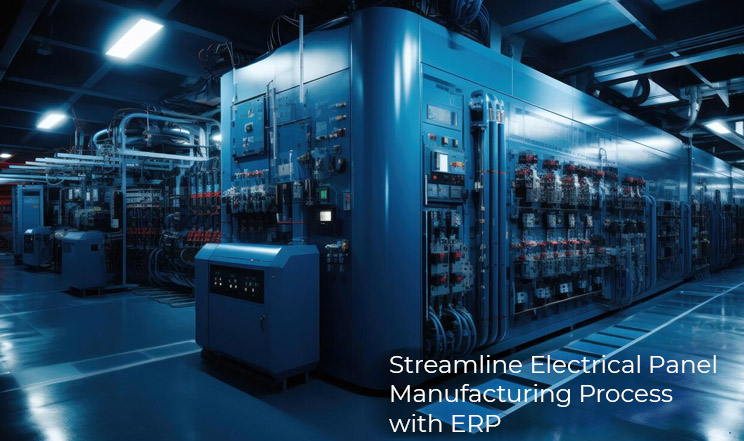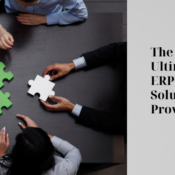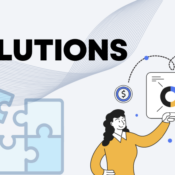How ERP Software can Streamline the Manufacturing Process in the Electrical Panel Industry

02/09/2024
/
How ERP Software can Streamline the Manufacturing Process in the Electrical Panel Industry
The electrical panel industry is a fast-paced and competitive field that faces constant changes in customer needs, technology, and regulations. To succeed in this challenging environment, companies making electrical panels must find ways to make their business operations more efficient.
One Solution is using ERP Software.
ERP software, which stands for enterprise resource planning software, is a tool that brings together all parts of a company like production, inventory, sales, and accounting. By using ERP software, electrical panel manufacturers can make their manufacturing process smoother, improve quality, satisfy customers better, and make more money.
In this blog, we'll look at how ERP software can benefit the electrical panel industry and share tips on picking and using the best ERP software for your business.


The Advantages of ERP Software for the Electrical Panel Industry

Reducing Time to Market
Efficiently plans and schedules production by considering customer demand, available capacity, material availability, and delivery deadlines. This helps avoid delays, overproduction, or underproduction, ensuring quicker and more effective product delivery.Enhancing Products with Added Services
Analyzes data from electrical panels to offer extra services like monitoring, maintenance, and repair. This not only boosts customer satisfaction and loyalty but also creates new revenue streams.Real-time Supply Chain Synchronization
Coordinates and monitors the entire supply chain, from suppliers to distributors and contractors, ensuring a smooth flow of materials, components, and products. This reduces inventory costs, enhances product quality, and improves customer service.Improving Efficiency, Quality, and Profitability
Automates and integrates business and manufacturing processes such as production, inventory, sales, and accounting. This results in cost savings, compliance with standards and regulations, and improved decision-making for overall business success.Accurate Financial Management
Tracks expenses, revenue, and overall financial health to facilitate precise budgeting, forecasting, and effective cost management.Effective Resource Utilization
Optimizes the use of resources like raw materials, machinery, and workforce through data analysis, leading to reduced waste and increased productivity.Enhanced Decision-Making
Provides comprehensive data to support informed decision-making, allowing manufacturers to analyze trends, identify areas for improvement, and make strategic decisions.Regulatory Compliance
Ensures that manufacturing processes adhere to industry regulations and standards, minimizing the risk of non-compliance and associated penalties.Improved Communication and Collaboration
Facilitates improved communication and collaboration among different departments, reducing errors and enhancing overall efficiency.Scalability for Growth
Easily scales to accommodate increased production, additional product lines, or expanded operations, supporting long-term business growth.Enhanced Customer Relationship Management (CRM)
Includes CRM functionalities to manage customer interactions, track orders, and provide superior customer service, strengthening customer relationships.Data Security and Integrity
Provides robust data security measures, ensuring the safeguarding of sensitive information and intellectual property.Tips on Picking and Using the Best ERP Software for Your Business

Customization Capability
Look for ERP software that allows customization to fit the specific needs of the electrical panel industry. The ability to tailor the system to your unique manufacturing processes ensures a better alignment with your business requirements.Scalability
Choose ERP software that can grow with your business. As your company expands, the software should easily scale to accommodate increased data, users, and manufacturing processes without causing disruptions to operations.Integration with Existing Systems
Ensure that the chosen ERP software can seamlessly integrate with other existing systems or software used in your organization. This integration streamlines data flow and prevents silos of information.Mobile Accessibility
In today's dynamic business environment, having mobile accessibility is crucial. Opt for ERP software that allows users to access essential functions and data on mobile devices, promoting flexibility and quick decision-making.Data Security Measures
Security is paramount. Choose ERP software with robust data security features to protect sensitive information. This includes encryption, user access controls, and regular security updates to guard against potential threats.Vendor Support and Reputation
Assess the reputation and customer support services of ERP software vendors. Choose a vendor with a solid track record of providing timely support, updates, and addressing concerns. Check customer reviews and testimonials to gauge user satisfaction.Cloud-Based vs. On-Premises
Consider whether a cloud-based or on-premises ERP solution suits your business best. Cloud-based options offer flexibility and accessibility, while on-premises solutions provide more control over data but may require additional infrastructure.Realistic Implementation Timeline
Establish a realistic timeline for the ERP implementation. Recognize that the process may take time, and it's crucial to plan accordingly to minimize disruptions to day-to-day operations.Change Management Strategy
Implement a robust change management strategy. Recognize that introducing ERP software may require adjustments in workflows and processes. Communicate these changes clearly to your team and provide support to ease the transition.Regular System Updates and Upgrades
Ensure that the ERP software you choose undergoes regular updates and upgrades. This ensures that your system remains up-to-date with the latest features, improvements, and security patches.Continuous Training and Education
Provide ongoing training and educational resources for your staff. As new features are introduced or processes change, continuous learning ensures that your team remains proficient in using the ERP software effectively.Post-Implementation Support
Confirm that the ERP vendor provides post-implementation support. Having a reliable support system ensures that any issues or challenges that arise after implementation can be addressed promptly.Success Story: Powertech
Powertech, a big company that makes LT panels, had some problems with making things, keeping track of their business operations, and helping customers. These problems were stopping the company from growing. To fix this and make things work better, Powertech decided to use Logway ERP. It made helping customers much better by putting all the customer information in one place. This helped give better services and tell customers when their orders would arrive. Logway ERP also made making things smoother by giving real-time information, making work better, and using smart ways to make things. This led to making more things and better-quality products. The ERP system also changed how Powertech manages its manufacturing processes, so there are no times when they run out of things or have too much. It helped them know what to order and when. This made Powertech work better, save money, and be more competitive in making LT panels. The different parts of the ERP system, like sales, production, purchase, store, and HR admin, all played important roles in making Powertech's business better.Conclusion
ERP software integrates all business processes, like production and sales, improving efficiency and customer satisfaction. It streamlines manufacturing, reduces time-to-market, and syncs the supply chain. To choose the best ERP software, consider needs, compare options, involve and train staff, and test outcomes. By leveraging ERP software for the electrical panel industry, you can enhance business performance and competitiveness.Recent Posts
Monika Narriya/0 Comments
Why are ERP solutions important in the education sector?
Monika Narriya/0 Comments
Which is the best ERP solution provider company?
Monika Narriya/0 Comments
How do we select the right ERP solution for our businesses?
Sumit Kumar/0 Comments
9 Most In-Demand Programming Languages for 2024
Sumit Kumar/0 Comments
Best Time to Post on Social Media – 2024 Guide
Sumit Kumar/0 Comments
Why You Should Consider Semantic HTML for SEO
All Categories
- Bing
- Blockchain
- Blog
- Branding
- Case Study
- Content Marketing
- Conversion Rate Optimization
- Cryptocurrency
- Digital Currency
- Digital Marketing
- Email Marketing
- ERP Solutions
- Facebook Marketing
- Google Ads
- Google Updates
- Graphic Designing
- Hire Developers
- Image SEO
- Influencer Marketing
- IT
- Local SEO
- Machine Learning
- Mobile Application Development
- Pay Per Click
- Pinterest SEO
- Podcast Hosting
- React JS
- Reddit & Quora
- Search Engine Optimization
- SEO Copywriting
- Social Media Marketing
- Software
- Software Development
- Technology
- UX and UI
- Web Designs
- Web Hosting
- Website Development
- Website Redesigning
- YouTube SEO








